
Jim Gaffigan thumbs through copies of ESPN the Magazine and turns to the receptionist. “Can I have one of these? I'm a celebrity.”
It’s Monday afternoon, and Gaffigan has just arrived at ESPN Studios from a taping for The Jim Rome Show that will air that weekend on Showtime. Gaffigan, a doughy, affable, surprisingly tall actor and comedian who wrote a book two years ago called Dad Is Fat, is wearing dark jeans, a T-shirt, and bright turquoise sneakers. He has five kids and a wife named Jeannie, and he has a sitcom — The Jim Gaffigan Show — in which he plays a dad with five kids and a wife named Jeannie.
Jim and Jeannie developed the show four years ago for NBC, but the network passed. “They said it felt very slice-of-life to them, and not in a good way,” Gaffigan says, “but that was how Jeannie and I designed it.” The show shot pilot episodes each of the next two seasons for CBS with the same autobiographical premise. After CBS passed the second time, TV Land picked it up and quickly renewed it for a second season that will premiere this summer.
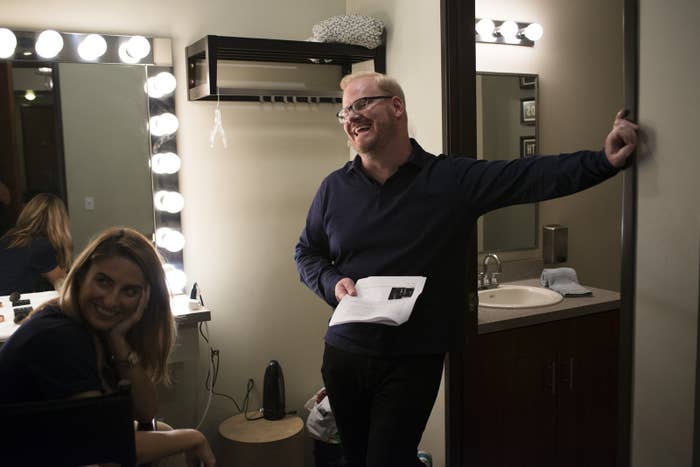
“It’s about having a show that has a broad appeal and isn’t compromising," Gaffigan says. "There are a lot of TV comedies going for people in the back row — simple jokes for people folding their laundry.”
Neil Everett, the co-anchor of ESPN’s West Coast edition of SportsCenter, will arrive shortly to tape the bit in which Gaffigan will stop by Everett’s cubicle looking for someone else and pretend not to know who Everett — a longtime friend — is. They’ll be in and out of the sketch in 30 minutes. ESPN will air it as a promo over the weekend.
“All these shows,” Gaffigan says, “they need content. I’m certainly not an expert on the NFL, but I’m someone who enjoys the NFL. I like what Rob Riggle does on Sunday — it’s topical. It’s content.” Riggle, a fellow actor and comic, does a popular sketch every week in the fall called Riggle’s Picks at the beginning of Fox’s NFL pregame show.
After taping the bit at ESPN, Gaffigan will head across town to be on Conan and then to Chavez Ravine to read the starting lineup at the L.A. Dodgers game. (“And play third base,” Gaffigan adds.) Then, barely 24 hours after he arrived, he’ll fly back to New York. Multitasking is hardly anything new for working comedians; but at a moment when there are more opportunities and more outlets than ever, managing to not get lost in the fray is its own full-time job.
“There’s so many shows,” Gaffigan says while getting his makeup touched up. “I haven’t even seen Transparent yet. That Jim Gaffigan Show is pretty good — I was pleasantly surprised.”
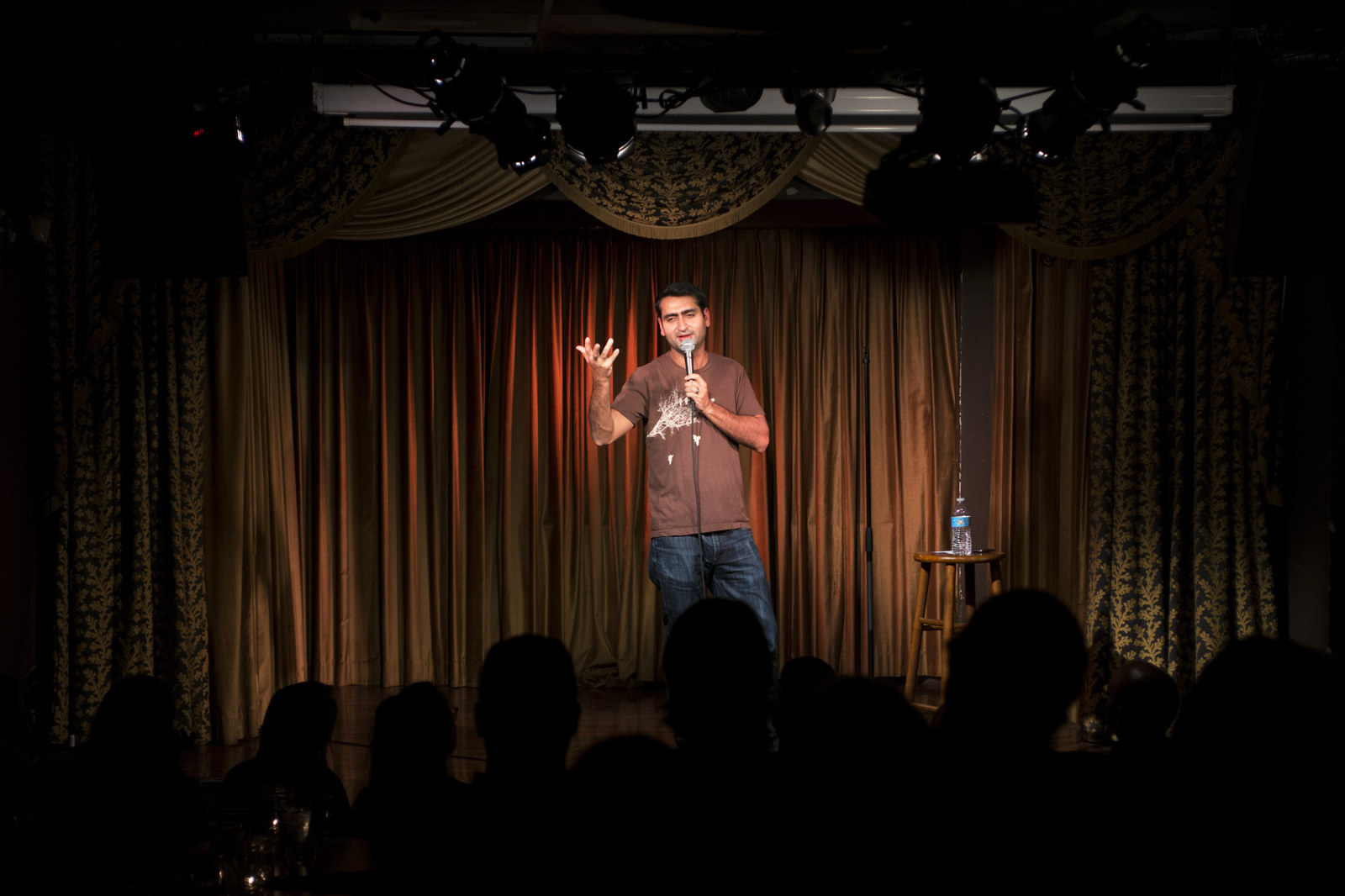
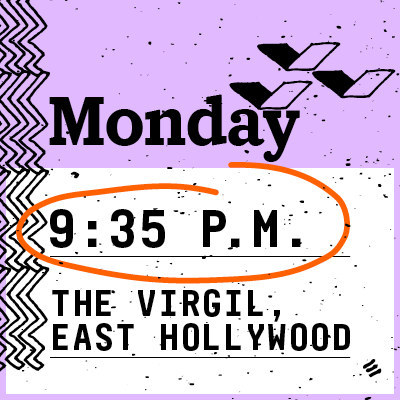
The back room at this speakeasy-style club, The Virgil, holds 75 comfortably; there are probably twice that many people in here. Kumail Nanjiani of HBO’s Silicon Valley is closing the show with a bit about a visit to the dentist.
“She said she’s 90% sure my mouth has The Shining,” he says. “I knew it was going to be bad.” He pauses for a beat. “I knew it was going to be bad because when she asked if I had any symptoms, I said, ‘Ice cream on the left side of my mouth makes my spine hurt. That’s bad, right?’”
Nanjiani’s routine moves seamlessly from observational to topical to biographical. His story about watching The Silence of the Lambs with his dad in Karachi was a new bit that he was trying out, and it had the same casual polish as the rest of the routine.
“Until last year, I had all of my wisdom teeth. I had all of them, and they hurt for years.” He speaks in short, declarative bursts that give the audience time to breathe. “They hurt all day, every day, for years. And then one day they just stopped hurting, which I think is like when the check-engine light —” The crowd knows immediately where he’s going, and he lets them laugh. “— in your car has been on for a month and just goes off. You know what? Don’t worry about it. LIVE YOUR LIFE. What’s left of it.”
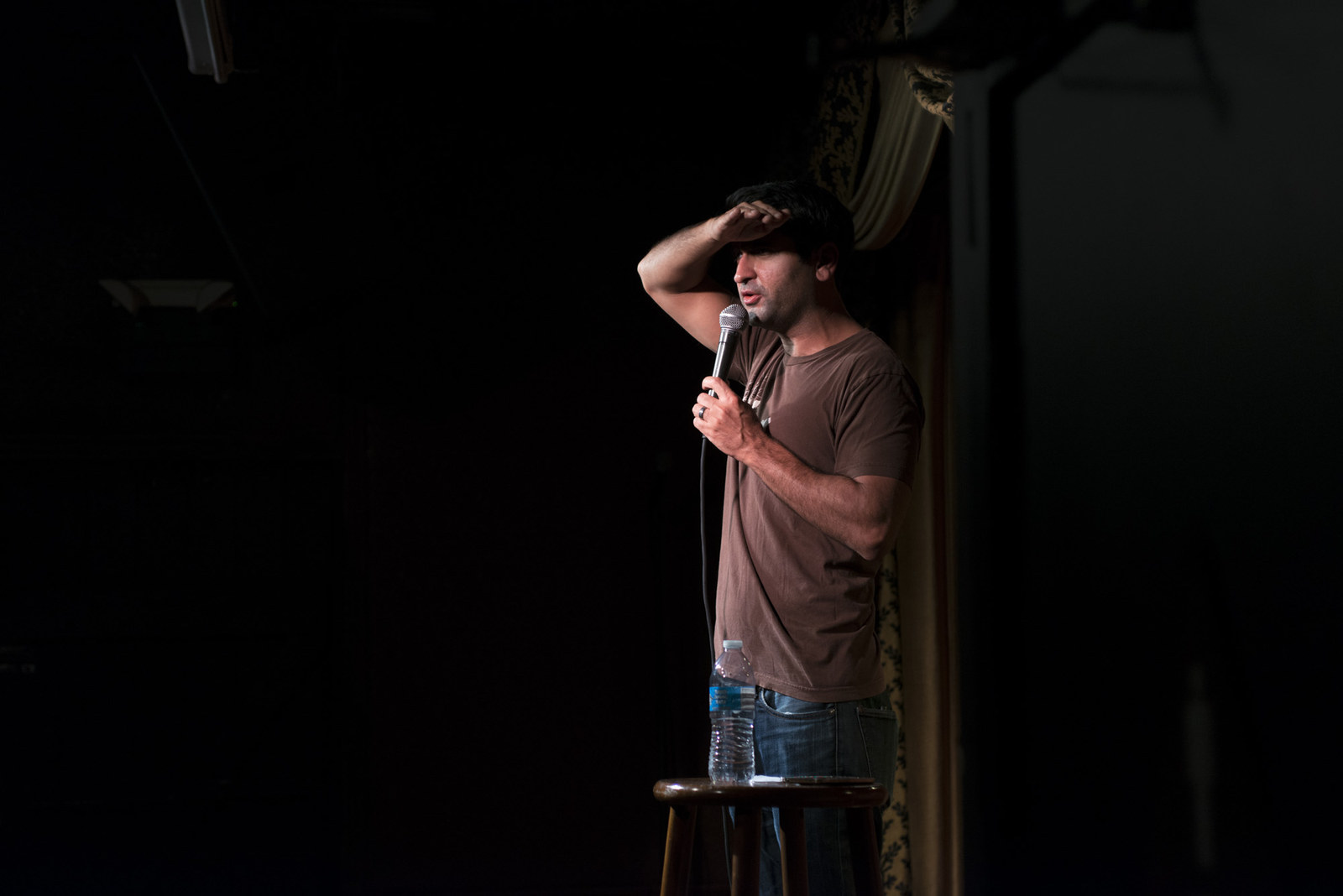
Nanjiani and writer-comedian Jonah Ray host a weekly stand-up show called The Meltdown With Jonah and Kumail in a small room in the back of a West Hollywood comic book store. A taped version of The Meltdown just finished its second season on Comedy Central, which has already ordered a third.
“Who has been the longest without going to the dentist?” he asks the audience. A man seated near the back raises his hand. “Sir with the beard, how long has it been?” Nanjiani asks.
“Since September 11, 2001.”
Nanjiani didn't know that was coming, but his response is light and deft. “And you were like, never again,” he says. That response got the biggest, most sustained laugh of the night.
After Nanjiani’s set, we talk about the autobiographical impulse that runs through comedies like The Jim Gaffigan Show, Louis C.K.’s Louie, and Aziz Ansari’s Master of None. The diverse range of individual points of view on those and other shows has expanded comedy into new places and new kinds of stories over the last few years. Gaffigan is raising a house full of kids. Louis C.K. is a divorced dad with issues. Ansari is a child of immigrants. Maria Bamford’s Lady Dynamite, which premieres in May on Netflix, deals with her own bouts with mental illness. Their shows are funny, but they’re not just funny.
“I don’t think anyone is completely biographical with their comedy,” Nanjiani says. “Even Louis has observational jokes that are very funny. A good comedian has a point of view that allows you to do both of those things. That’s what I try and do.” Louis C.K.’s name comes up frequently in our 45-minute conversation, so I was surprised at Nanjiani’s answer to a question about whether Louie is largely responsible for comedy’s move toward more introspective storytelling. “Louie is amazing, but I think podcasts have a lot to do with it. It created this appetite for comedians to be themselves and to tell personal stories.”
When the production on the third season of Silicon Valley wraps in early spring, he’s planning to begin production on a film he recently wrote with his wife Emily Gordon, the talent booker for The Meltdown and a writer on The Carmichael Show. Nanjiani describes the film, called The Big Sick, with little more elaboration than to say that it will be autobiographical. Judd Apatow is producing it.
“For a long time, the only way you could see comedians was by seeing their act,” Gordon says in an interview after the film was announced. “Podcasts and all these TV shows where comedians can do things besides stand-up have changed things a lot. People that knew comedians through their jokes are now getting to know that person. It adds a context that we didn’t have before.”
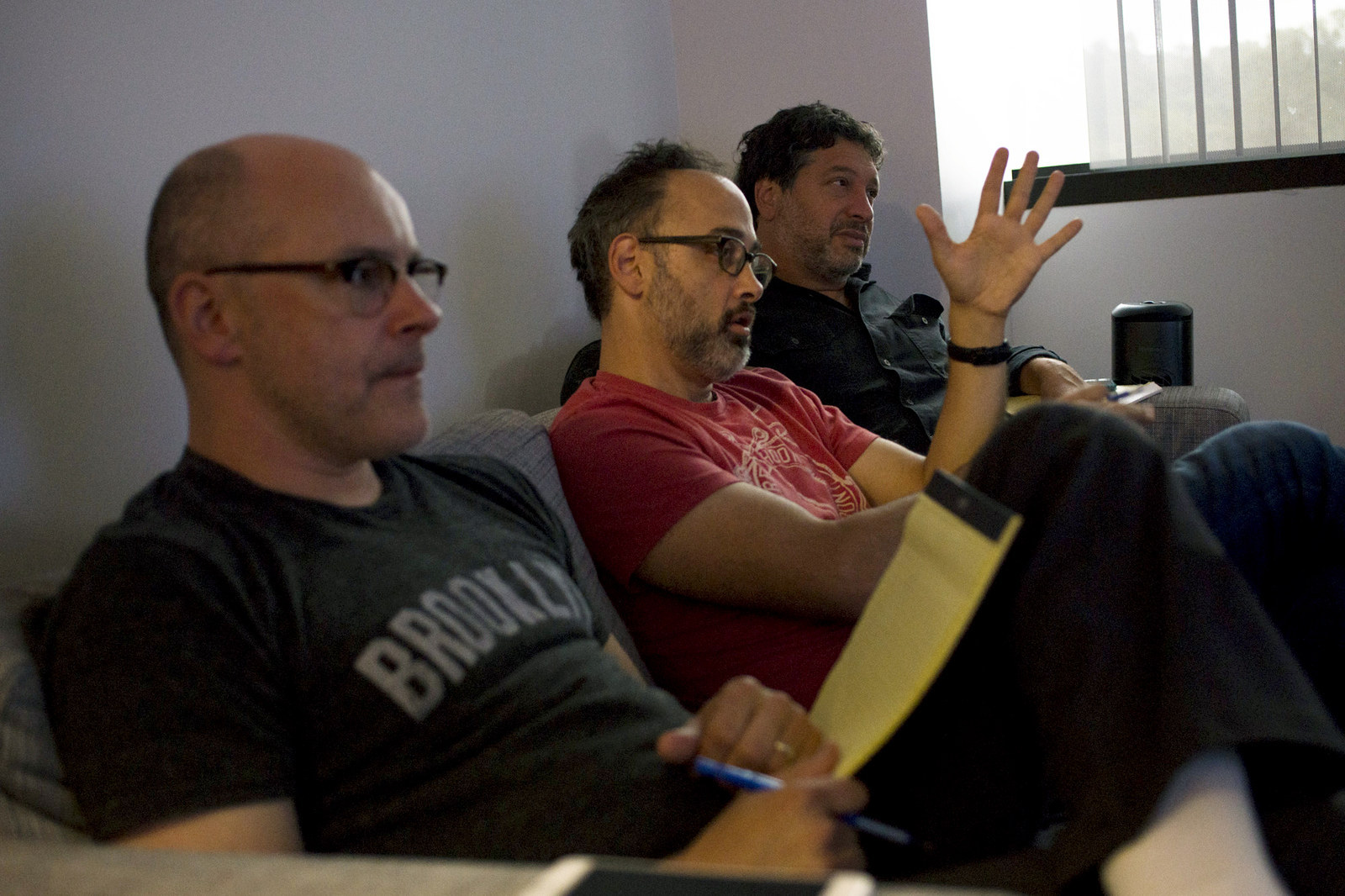
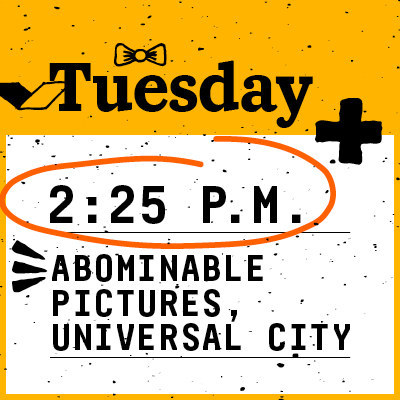
“Alright,” David Wain says. The editor hits the space bar to stop the playback. “I think that would be funnier without Shirley saying, ‘Well,’ and without any air.”
The editor backs up the scene a few frames and cuts out guest star and Partridge Family matriarch Shirley Jones saying, “Well,” and the short pause that follows. Then he scrubs back to the beginning of the scene and plays it again for Wain, Jon Stern, and Rob Corddry, the three executive producers of Adult Swim’s long-running absurdist comedy Childrens Hospital.
They are sitting on a couch at their Abominable Pictures production office in Universal City. Opposite them is the editor, his computer, and a 42-inch display. The scene — in which Jones coaches Henry Winkler’s hospital administrator character on how to act like another character’s Grandpa Willy — is in an episode from the new season. A postproduction supervisor notes more edits to be made later.
“Can you go back to that reaction shot,” Wain says at the end of a later scene, referring to a shot of one longtime series regular watching two other characters interact. “I just, I love it.”
“Do you?” Stern asks. “The reactions in this scene are my least favorite performances of the season.”
“I know the quality you’re reacting to there,” Corddry says, leaning forward on the couch and looking across Wain at Stern, “and it’s what makes the scene funny.”
“To me it works, but I don’t know the footage,” Wain says to Stern, “so I wonder if you’re having a thing about —”
“I just see someone overacting,” Stern says flatly.
“I agree,” Wain says, “but I think it’s really good.”
“It plays like a —,” Corddry says.
“Like an SNL sketch?” Stern asks.
“No, no,” Corddry says, “definitely not like that. It plays on genre, like melodrama.”
“I see that too,” Wain adds, “but the content of the reaction shots is funny. Even if she’s not nailing it, it’s working.”
“What I’m saying,” Stern says, “is that there’s footage where she just doesn’t play it so big. Mugging it up like that, I think, lessens what she’s trying to do.”
“It’s a big performance,” Corddry says, “but I don’t see it as a dishonest one.”
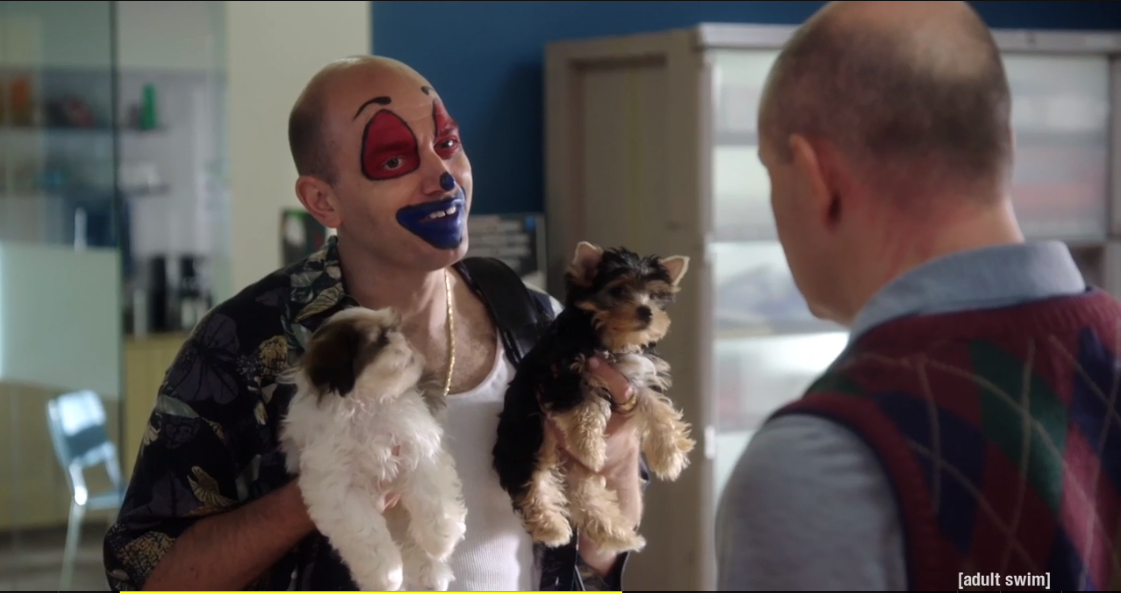
Stern, Corddry, and Wain have worked together on seven seasons of Childrens Hospital, which began as short webisodes before being reinvented in a 15-minute incarnation for Adult Swim. Corddry, who works mostly as an actor, will leave Hollywood a few weeks after this edit session for Miami to film the second season of HBO’s football series Ballers, on which he plays a wisecracking money manager.
In 2014, Wain worked on 17 different projects for film, television, and streaming video. In 2015, he spent a big chunk of his time on one project — Wet Hot American Summer: First Day of Camp — for which he co-wrote and co-produced, directed all eight episodes, and played a hunky Israeli camp counselor named Yaron. At various points on Wet Hot’s production schedule, though, he was also acting on Comedy Central’s Another Period and getting Childrens Hospital ready to shoot.
Wain will likely return for the second season of Another Period, and there is momentum for a second season of Wet Hot that he would again produce, direct, and write. He’s circling a couple of movies to direct. And tonight, he’s performing solo at an experimental comedy show.
“When I directed Role Models,” Wain says, “and Wet Hot American Summer and Wanderlust...” The room starts to giggle. “...and The Ten and They Came Together...” Everyone in the tiny editing room is now laughing, and Wain delivers the speech with fumbly deadpan. “...and The State and Stella, I learned some things over the years about comedy.”
“I think David makes a good point,” Corddry says, laughing. “Let’s move on.”
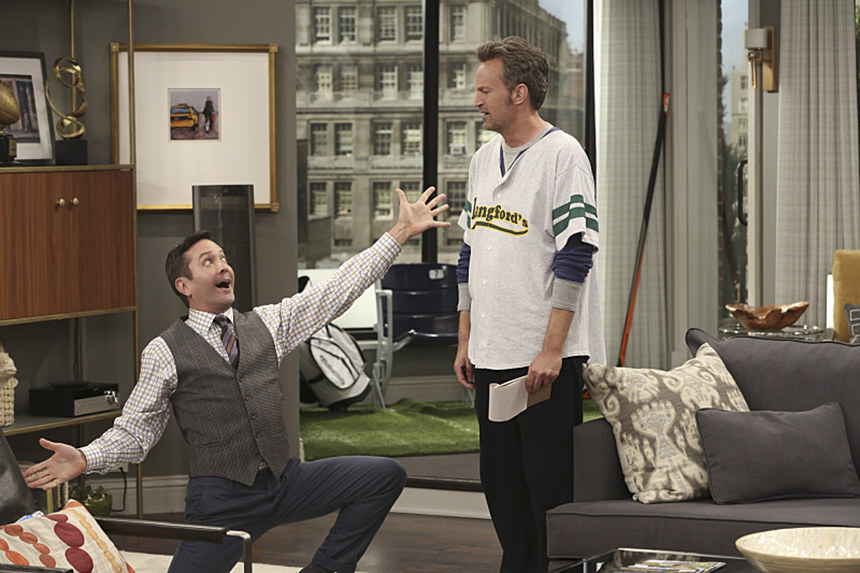
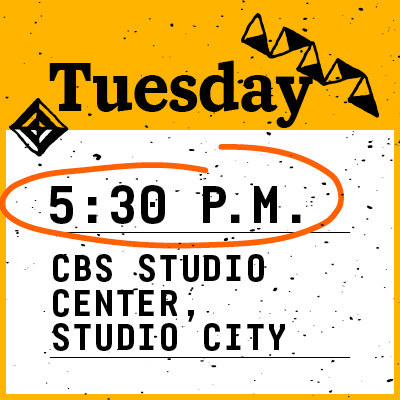
The audience members fill into their seats at Stage 15, a warehouse-sized building on the CBS lot. An episode of The Odd Couple, the reboot that stars Matthew Perry and Thomas Lennon, begins to play on the overhead monitors. Sets for a restaurant, a living room, a kitchen, etc., are lined up side by side across the stage like a single-floor Barbie Dreamhouse. An announcer calls out the cast of the show like they're the starting lineup for the L.A. Lakers. "As Felix Unger, Thomas Lennnnnoooon!"
In the first scene, Lennon and two of the supporting cast members are at a table on the restaurant set. The writers and producers sit in director's chairs just behind the cameras. The director calls action from a giant video monitor and quickly calls cut to work out how one of the characters will eat a French fry. He calls action again.
“I have loads of quirks,” Lennon says — fast-talking and overarticulating — midway through the scene. “I can list them alphabetically. The first one is my incessant alphabetizing.”
The line gets a laugh but not a big laugh; it’s one of several jokes that the writers flag to replace for the next take. Every Thursday, the writers deliver a new script and the cast does a table read. The writers room revises the script at the end of every day’s rehearsal until the following Wednesday’s taping. And during the taping, they keep revising. After Lennon’s “incessant alphabetizing” line gets a lukewarm reception, they throw out some suggestions. Lennon winds up improvising it.
“I have tons of quirks,” he says. “In high school, they called me Captain Quirk. And not in a nice way.”
That gets a much bigger laugh.
“I knew going into it that I was not doing an artsy kind of show that would be critically well-received,” Lennon says several days after the taping. His career began over two decades ago with Wain in The State. “This is popular entertainment. That said, I’m proud of what I’m doing in the role. In my career, even the cult-y stuff that people loved later like The State and Reno 911! never got much attention. I’ve never been in the business of pleasing television critics, but why start now, right?”
A multi-camera show like The Odd Couple is a strange amalgam of stage play, improv show, and circus. A magician or a stand-up comic keeps the crowd attentive between takes. The script is in constant motion. Everyone onstage — both in front of and behind the cameras — is in constant motion. The acting is broad and stylized, and every line is weighed for audience approval.
“You can very much hear the audience,” Lennon says after the taping. “There’s nothing more distressing than when you come out and your first line isn’t funny. It can almost undo the rest of the scene.”
Lennon plays the prissy, uptight Felix Unger role that Jack Lemmon played in the 1968 film and Tony Randall played in the ABC series in the 1970s. As much as Lennon’s lines change throughout the Tuesday night taping, his mannerisms and gestures are virtually indistinguishable from take to take. The Odd Couple premiered on CBS as a midseason show in early 2015, and the second season will run starting in April. The show skews older — ranking among network comedies last season in total viewers (11.3 million) but eighth in the 18–49 demographic (2.7 rating).
“If you start moving around with what you’re physically doing, the editors can’t cut your performance together,” Lennon says. “Even if you’re saying something different, it’s super important to look like what you looked like before — the way your hold your hands, the way your body is resting.”
In the next scene, Perry’s grouchy, unkempt Oscar Madison is in the living room of his apartment mixing a cocktail in a giant bucket. Lennon is heading out the door with two large suitcases to spend the evening at his girlfriend’s place for the first time.
“Well, I’m off to Emily’s,” Lennon says.
“You sure you’ve got enough stuff for one night there?” Perry asks.
“Just a few essentials. Eye mask. Nasal strips. Special pillow. Special sleep fragrances. Do you suppose Emily has a mister?”
“Sure doesn’t seem like it.”
That one gets a big laugh on every take.
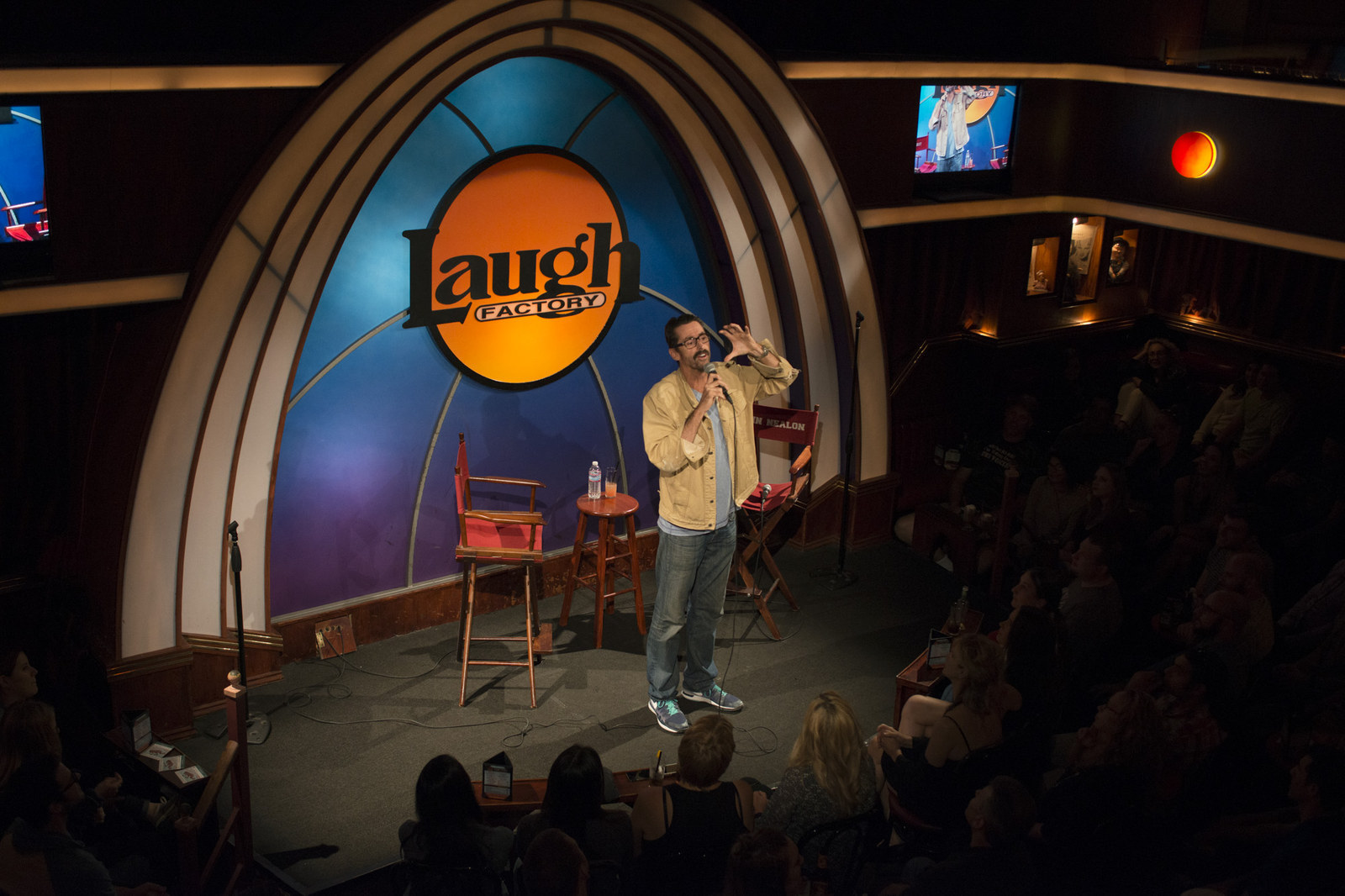
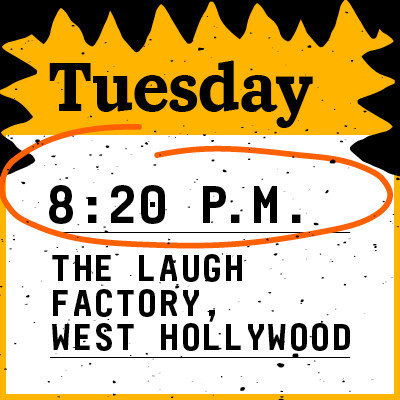
“Coconuts, man,” Kirk Fox says, looking up from folded-up notes in his hand. “They don’t really want to be eaten.” A safe observational joke to start. “They live 50 feet in the air. And they’re encased in a hairy wooden container.” He pauses periodically to see where the laughs are, and that last bit got a decent response. “I don’t want to eat anything where you need a hammer and a screwdriver.” Mild laughs.
Fox, a thin reed with an imposing mustache, finds Kevin Nealon in the audience and raises a shoulder as if to say, "Ya think?" “I tried it, Kevin,” Fox says. “That was my opener.”
“It was nice,” Nealon says, nodding from the audience.
New Material Night With Kevin Nealon is a monthly show at The Laugh Factory on Sunset Boulevard. The show is always on a weeknight early in the evening, and the guests aren’t always announced in advance — a low-profile way for a well-known comic like Whitney Cummings or David Spade to try out new material.
“I like it,” Fox continues with Nealon. “I like the flow. I felt confident about just trying it.” Fox is gauging Nealon’s take on the joke but also playing to the audience. “The result wasn’t optimal,” Fox says, bearing down hard on that last word. “Let me just move on to the next one,” he says, looking back down at his notes. “You’re the first to hear any of this shit,” he says, “and the last to ever hear that coconut bit.”
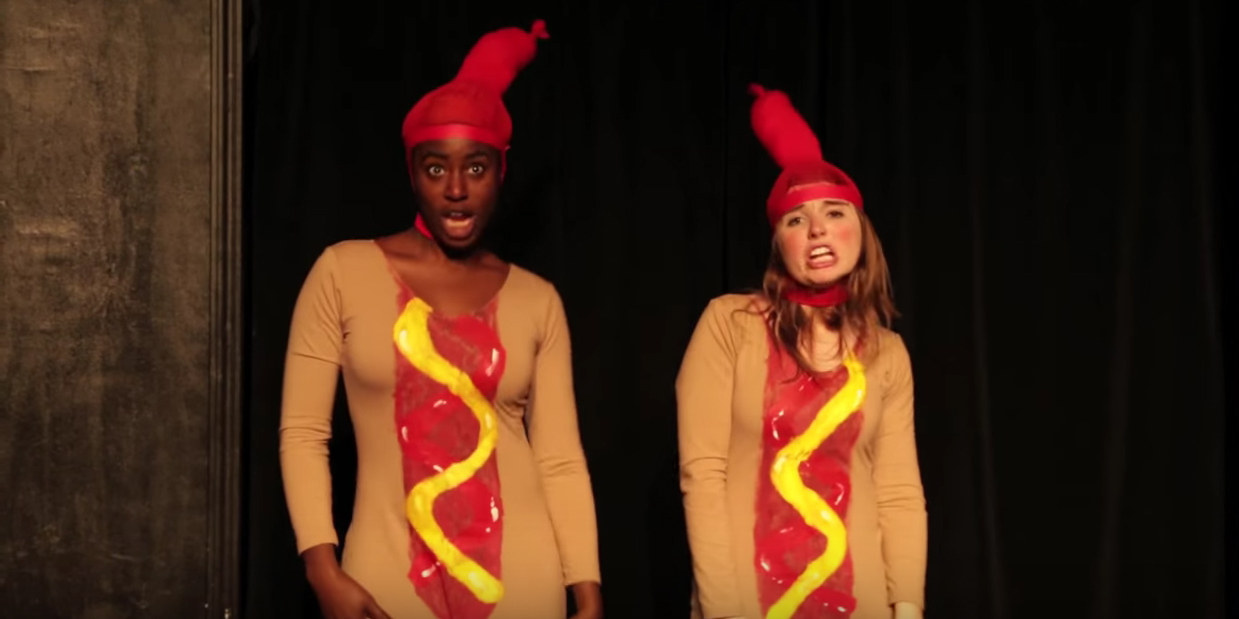
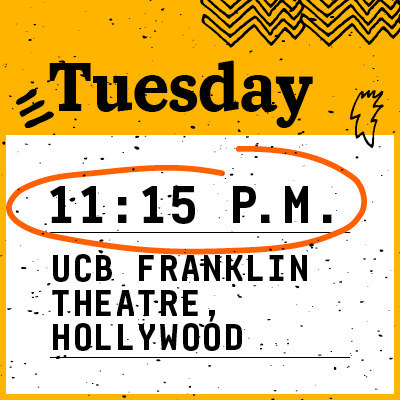
If multi-camera sitcoms and stand-up are the burger and fries of comedy, UCB Theatre’s Cool Shit, Weird Shit show is an exotic buffet of live grasshoppers. It’s also an extremely hot ticket and, at $5, a cheap one. On Tuesday night shortly before 11 p.m., the line is wrapped around the block of the Hollywood Hills theatre, and no one in line even knows what’s going to happen inside.
Early in the show, Beth Hoyt wriggles out onto the stage stiff-legged with her arms wrapped around her body, identifies herself as an earthworm, and proceeds to tell earthworm jokes. “What does a nighttime me do for work?” Hoyt asks. “Glow jobs.” She moves quickly from joke to joke. “What did my uncle call my friend who was a very good dancer?” Hoyt asks. “A little maggot.”
David Wain performs an original lounge song that features the oft-recurring line “My name is Rocco Vaina” and moves back and forth across the line from earnest to ironic. Then he performs an elaborate and impressive card trick — he’s known for this in the comedy community — while a UCB performer sings a lounge song in the background.
A young duo known as Two Hot Dogs — Kirby Howell-Baptiste and Natalie Palamides, who frequently work together as tap-dancing hot dogs — close the show. Howell-Baptiste wears a long, purple gown, and Palamides wears what appears to be a bathrobe. They touch audience members on the heads and shoulders pope-style and whisper “blessings,” and then they perform a tribal dance and chant gibberish about Mother Earth.
After engaging the crowd into a call and response to bring forth the rains, Howell-Baptiste and Palamides ask the audience to join hands and walk outside the theatre. The indoor portion of Cool Shit, Weird Shit is over. They bring the audience outside to perform a rain dance.
Palamides works mostly as a voice actor, including on The Powerpuff Girls reboot that will premiere this spring on Cartoon Network. Howell-Baptiste appears in Netflix's new series Love and is taping an ABC pilot for a comedy series with Craig Ferguson called The King of 7B. Palamides and Howell-Baptiste are shopping a script for a web series that they wrote together.
“We’re lucky enough to both be working only as actors now,” Palamides says. “A year ago, I was working at a coffee shop and so was Kirby.”
The audience walks outside row by row — hands joined — onto Franklin Avenue chanting, “Sky pee-pee, sky pee-pee, fall down on me-me-me.” This goes on awkwardly long, to the bemusement of a neighborhood that has no doubt seen this sort of thing many times in the 10 years since UCB Franklin opened.
Right on cue, it begins to rain.
“It’s working! It’s working!” Howell-Baptiste yells out.
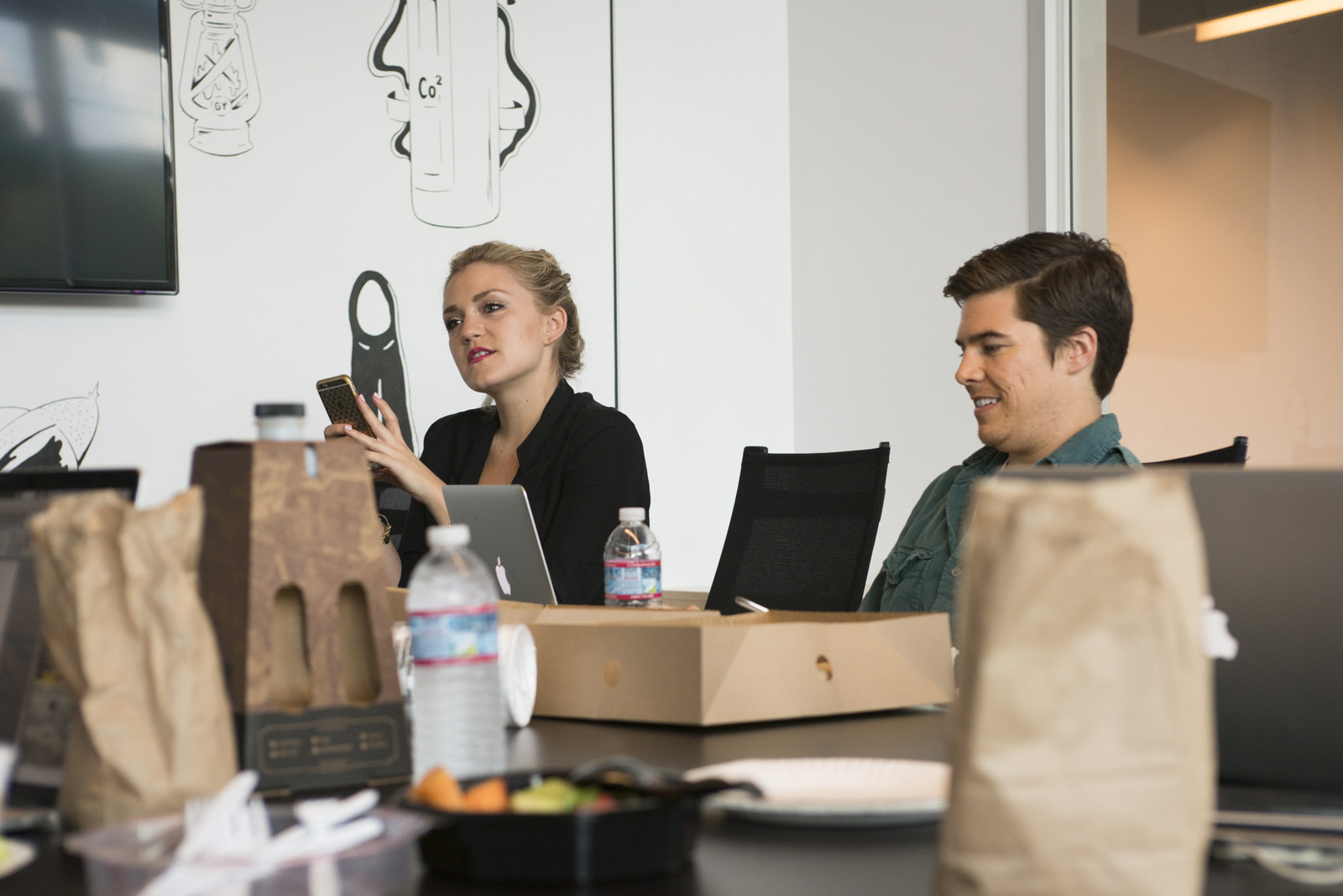
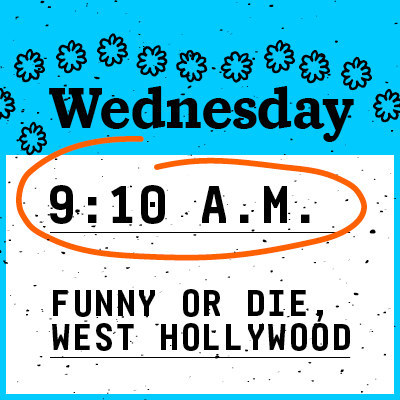
Internet service has been off and on all morning, which is a problem because Funny or Die produces comedy content around the clock for 15 media and social media platforms. The IT department is working on it. It’s Wednesday morning, and the writers room for You’re Welcome — a Snapchat rundown of the week’s pop culture news hosted by actor-writer Jessica Lowe — is making do.
A story had gone around social media the day before about a bear cub who broke into a restaurant kitchen in Colorado Springs and ate a bucket of icing. Bear cub. Icing. Sleepy. They don’t even need to see the pictures.
“So,” says head writer and director Dashiell Driscoll, looking over the list of maybes, “we’ve got Black Mass, 9/11 guy, girl who sees her shadow, Taco Bell.”
“And Dislike button,” Lowe says.
“That’s already in,” Driscoll says. “So Snapchat update, bear with the icing, and the Dislike button are locked topics. We just need two more — one more for sure and one alt.”
Every Wednesday morning, the writers spend a few hours pitching jokes and putting together a script. When they’re done, they load the script into a makeshift teleprompter — an old iPad and a mirror — and Lowe performs a stand-up routine in front of a green screen. When they’re finished, the video goes immediately down the hall to an editor who adds backgrounds and special effects. On Friday, it goes on Snapchat. On Saturday, it’s gone forever.
Funny or Die’s You’re Welcome is on Snap Channel, or rather was on Snap Channel. (Though no one at Funny or Die knew at the time, this would be the last episode of You’re Welcome. Snapchat quietly took Snap Channel offline in late September; a spokesperson would not elaborate on the reasons for shutting Snap Channel but said the company learned a lot from the experience and has not ruled out doing original content in the future.)
Even moving at internet speed, the roughly 36-hour window between when You’re Welcome tapes on Wednesday and when it goes live late Thursday night is an eternity in pop culture. Actor and stand-up comic Steve Rannazzisi had admitted that morning to the New York Times that one of the central narratives of his career as a stand-up comic — working for Merrill Lynch at the World Trade Center and escaping the South Tower just before the second plane struck it on 9/11 — was not true. Buffalo Wild Wings had already cancelled his endorsement deal and started pulling his TV ads.
“The Steve Rannazzisi one could be like: His Comedy Central special airs tomorrow. Or you could just lie about it and tell everyone you watched it.”
“Or maybe Jess could say she was in Seal Team 6.”
“I was the German shepherd in Seal Team 6!” Lowe says.
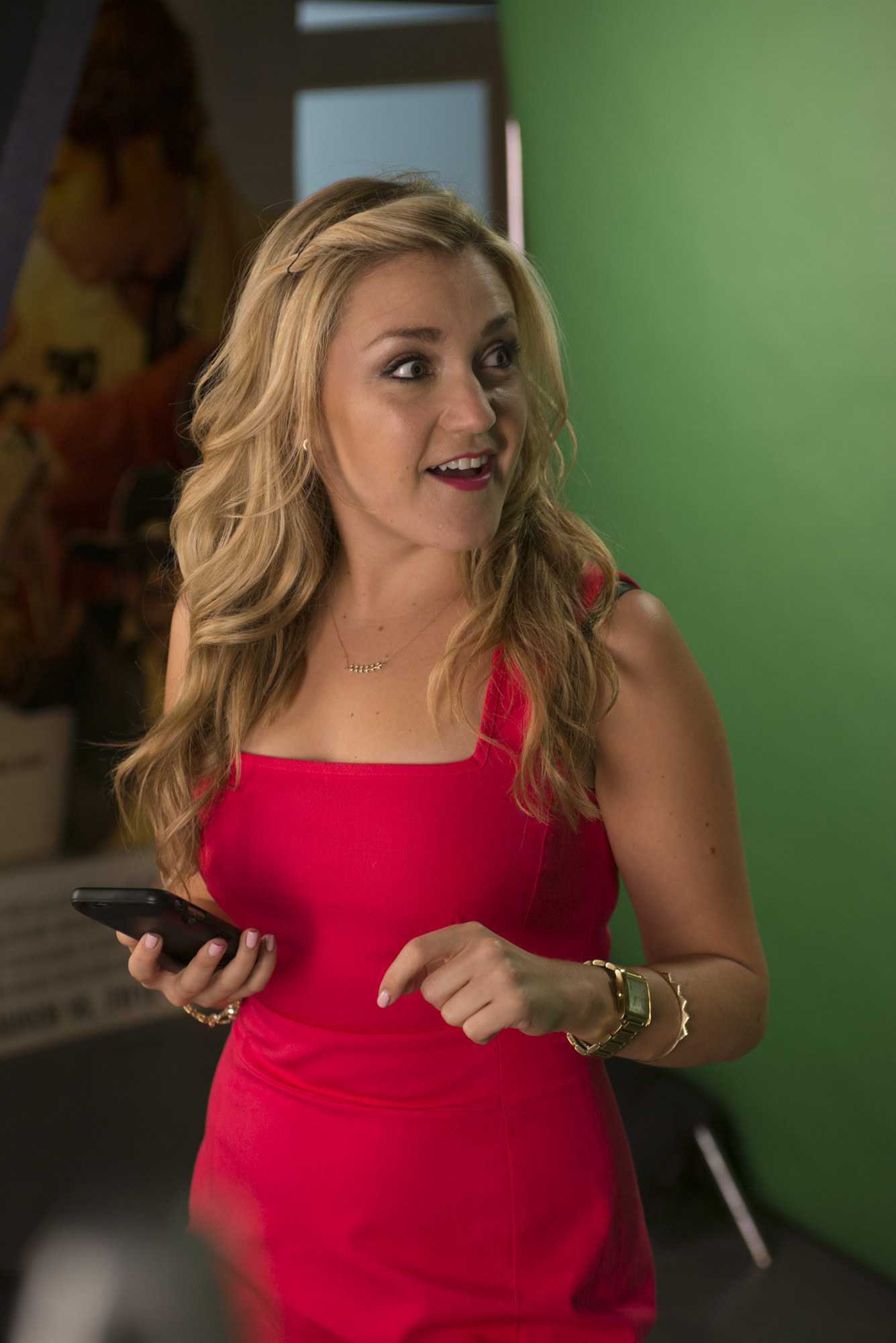
By 11:30 a.m. the script is done and Lowe heads off to wardrobe, hair, and makeup. I head up to the second floor where a Funny or Die film crew is setting up the lighting, camera, and green screen in an area just down from the cereal bar. Lowe is back from wardrobe in a little red dress, and she runs quickly through the script to work out the syntax and the emphasis while the crew gets the lighting ready.
“Jerrod is in,” a producer tells her just before the tapings begins. Jerrod Carmichael, whose NBC summer hit The Carmichael Show was just renewed for a second season, is in the sketch that’s taping downstairs and will wrap later in the afternoon.
Jay Jackson, best known as Perd Hapley on Parks and Recreation, is playing a dad in an ad spoof about a new smartphone for African-Americans that has badge-number recognition software and “a special feature that allows you to” — as phone salesman Carmichael says in the sketch — “call the police on the police while you’re filming the police.” Lowe will be gone already, but Driscoll can figure out a way to incorporate Carmichael into this week’s You’re Welcome by the time he’s available to tape it. Lowe is excited. Driscoll is excited.
“Are we rolling?” Lowe asks. “Test test test.”
“We’re rolling,” Driscoll says.
The team moves quickly through the intro, shooting five or six times — different inflections, different facial expressions — in a row without stopping the camera between takes. After the intro, they move on to the bit about Snapchat’s new photo lenses. After the You’re Welcome team works out their technical issues, they tape the rest of the sketch and more intros that they wrote during the break.
“We’ve got rainbows, haters, and bears — oh, my!” Lowe says. “Swipe up!”
“OK, do again and on ‘oh, my!’ do one one of these,” Driscoll says, putting his hands on his face, “like on Home Alone.”
“We’ve got rainbows, haters and bears — oh, my!” Lowe says, doing the Home Alone scream face. “Swipe up!”
“One more time — a little faster,” Driscoll says.
“We’ve got rainbows, haters and bears — oh, my!,” Lowe says. “Swipe up!”
“That’s a wrap,” Driscoll says.
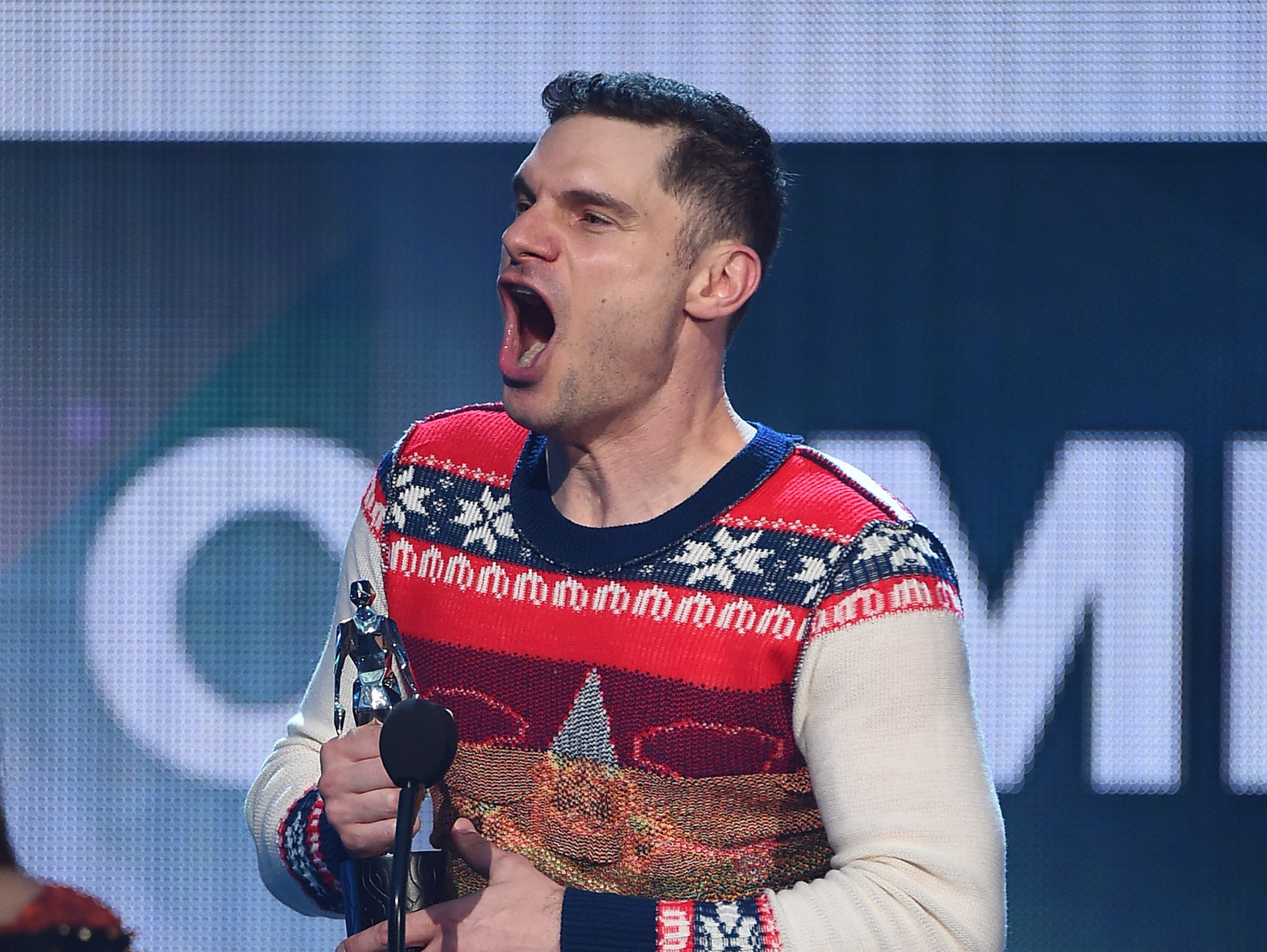
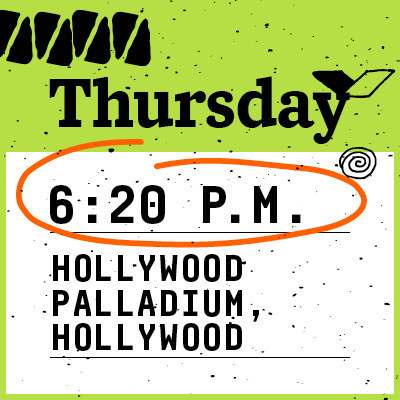
YouTube star Flula Borg looks lost. He’s wearing a fanny pack and an aggressively ugly ski sweater. He’s an ascendent comedy star in an ascendent comedy medium, and he's on the red carpet with Pitch Perfect 2 co-star Hailee Steinfeld and Vine star Cameron Dallas.
Borg, the oddity who sang “This Is How We Do It” with a thick German accent in Pitch Perfect 2, is nominated for a Streamy Award for best comedy channel for his songs, sketches, and confused deconstructions on everything from “Can’t Feel My Face” to masturbation. When he wins, this weird mess is the acceptance speech he gives on a live VH1 broadcast:
“What? Hello? What has happened. I feel like a panda bear who is playing hockey with other humans. This is a mistake, but I will take it in a happy way. Very confused. All the excellent humans that have been nominated, I will slice this up in a nice pizza way and mail this to you. Also, thank you to all the humans that are here and the friends and family. I love YOU! OK. Bye-bye.”
A production assistant wrangles him backstage and walks him down the hall to the media room, a conference room carved into tiny horse stalls that are each decked with lights and cameras for recording TV interviews and — what else? — YouTube clips.
“So what’s next for you?” a reporter from Entertainment Tonight asks.
“I will sit down and have a snack,” Borg says, squinting and darting his eyes, “and perhaps in about an hour, I will need to go toilet.”
Borg tapes more sound bites and poses awkwardly for his official Instagram photo. He works his way back to the door and turns back and yells “I am leaving now!” to no one in particular.
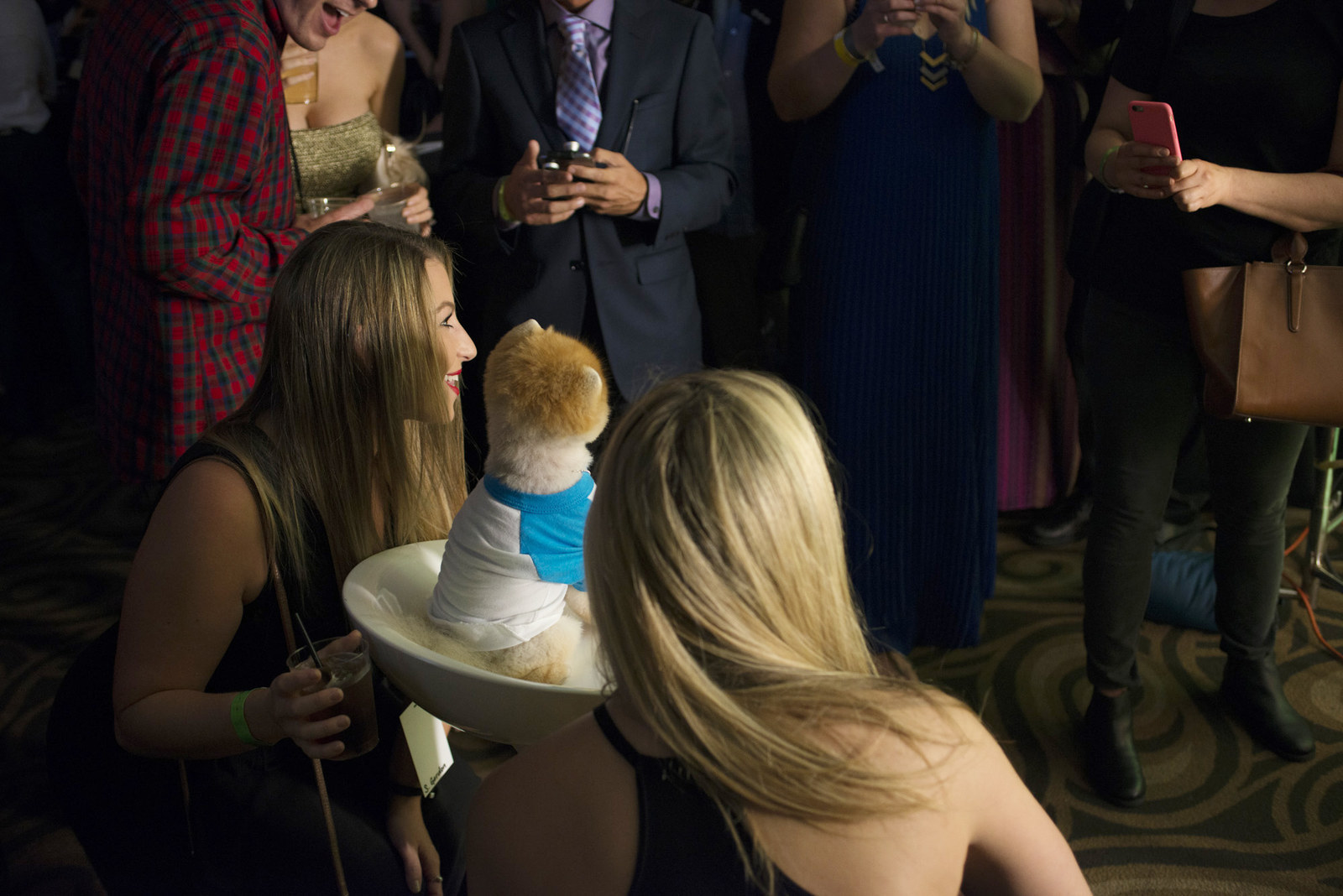
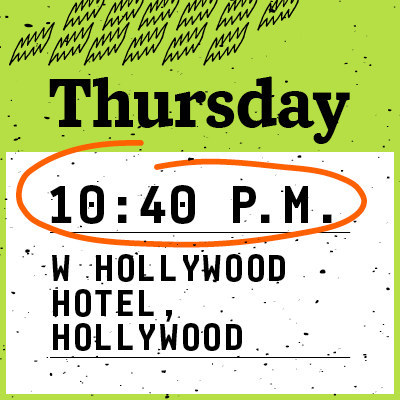
Two blocks from the Hollywood Palladium, the rooftop terrace at the W Hollywood hotel is slowly filling up. Young, attractive cocktail waitresses carry around plates of crab cakes, tiny cheeseburgers, and sriracha-fried chicken bites on skewers. There is a confetti station and three open bars. A playback of VH1’s Streamy Awards broadcast runs on TVs around the pool, but no one is watching. There is a DJ and a dance floor, but it’s early yet.
Fullscreen, which is hosting the Streamys after-party, generates much of its revenue managing YouTube stars but isn’t putting all of its digital eggs in one basket. The company just released its first feature film, The Outfield, on iTunes. The film will also be part of Fullscreen’s forthcoming streaming service — announced the morning of the Streamys — which will include a reboot of the 1970s series Electra Woman and Dyna Girl with YouTube star Grace Helbig, who co-hosted the Streamys. Fullscreen’s touring division recently completed a 20-city tour of Girls Night In, a stage show starring five of its young female streaming stars, and has hinted at more dates to come.
“People watch content now however they watch content,” says Burnie Burns, a co-founder of Rooster Teeth, which produces the long-running animated series Red Vs. Blue. “It’s our job as creators to put it where ever they watch it. We put Red Vs. Blue on Netflix, which we had never done before because we thought it would cannibalize our video sales. As soon as we did it, my Twitter feed exploded with people who said, ‘Great. Now I can watch that show.’”
Burns recently finished production on a sci-fi comedy feature called Lazer Team that raised $2.5 million on Indiegogo and premiered in January in theaters and on YouTube Red. Matt Hullum, another co-founder of Rooster Teeth, directed the film, and the cast includes veterans of other Rooster Teeth projects.
Shortly after midnight, I walk out on the balcony of the W’s rooftop terrace, which overlooks the Capitol Records building and the Hollywood sign. I pull up Snapchat on my iPhone to see if You’re Welcome has posted yet. Jess Lowe tells me to “swipe up!” Digital rainbows flow from her mouth just like she promised.
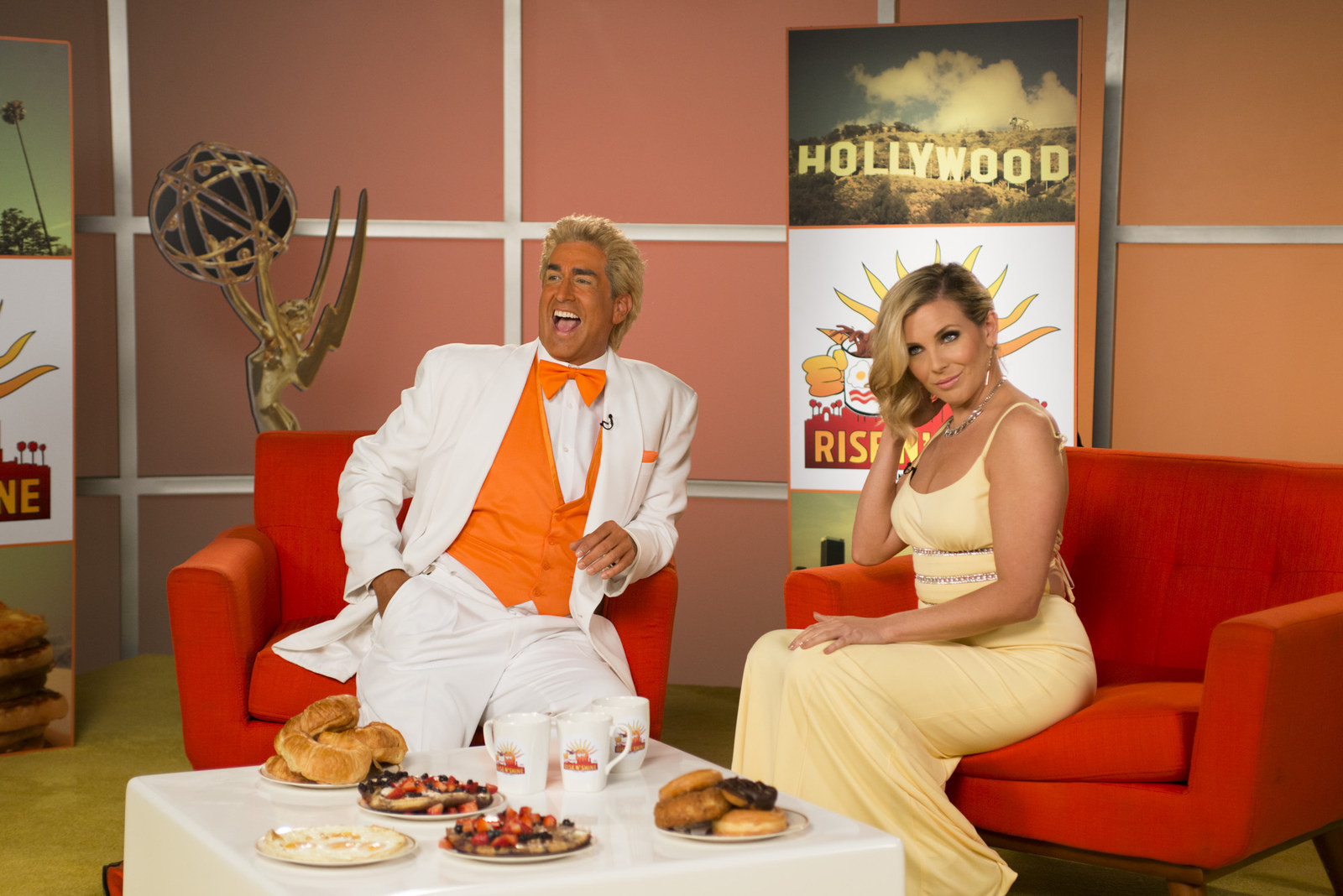
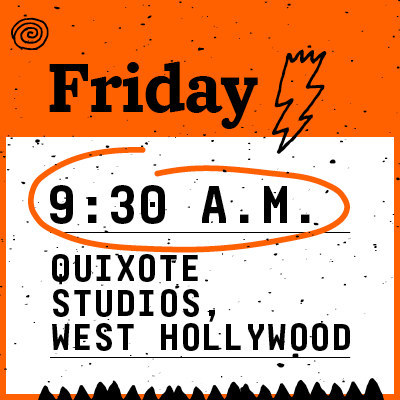
Rob Riggle walks out of wardrobe wearing a shiny white suit and orange vest that you would not wear to your junior-high formal. He has tissue paper tucked into his collar to keep the trawled-on makeup — which is crayon orange — off of his shirt.
“Now, I have to get orange hands to match,” he says.
Riggle is hosting a fake L.A. morning show called Rise N’ Shine for Riggle’s Picks, his sketch show that airs each week in the fall during Fox’s NFL pregame coverage. Riggle and the production team are the only constants; the premise, the location, and the guests change each week. In nearly 80 episodes over four years, Riggle has parodied romantic comedies with Mindy Kaling, old rednecks with Paul Scheer, and support groups with Rob Corddry.
“The first job I ever had in show business was as a cast member of Saturday Night Live,” he says. “And I thought, I’m in baby! I’m here! But in show business, there’s no finish line. You hope you get a gig, and you hope it lasts awhile. And then you hope you get another gig.”
June Diane Raphael is sitting in the next makeup chair in a canary-yellow dress. She has the day off from Netflix’s Grace and Frankie and is playing Riggle’s Rise N’ Shine co-host. When this half-day shoot is finished, she’ll head out to work on one of several projects she’s developing with longtime writing partner Casey Wilson.
“I have been surprised at how many younger women are watching the show,” Raphael says later of Grace and Frankie, which stars Lily Tomlin and Jane Fonda. “The fact that they’re in their seventies and doing physical comedy shows how much things are changing. People don’t need to see the exact representation of themselves on TV to be able to relate.”
Raphael’s hair and makeup are done, and Riggle’s hands are sufficiently orange. Chris Pizzi, the longtime Riggle’s Picks producer and director, walks into the room.
“We’re ready to start,” Pizzi says.
